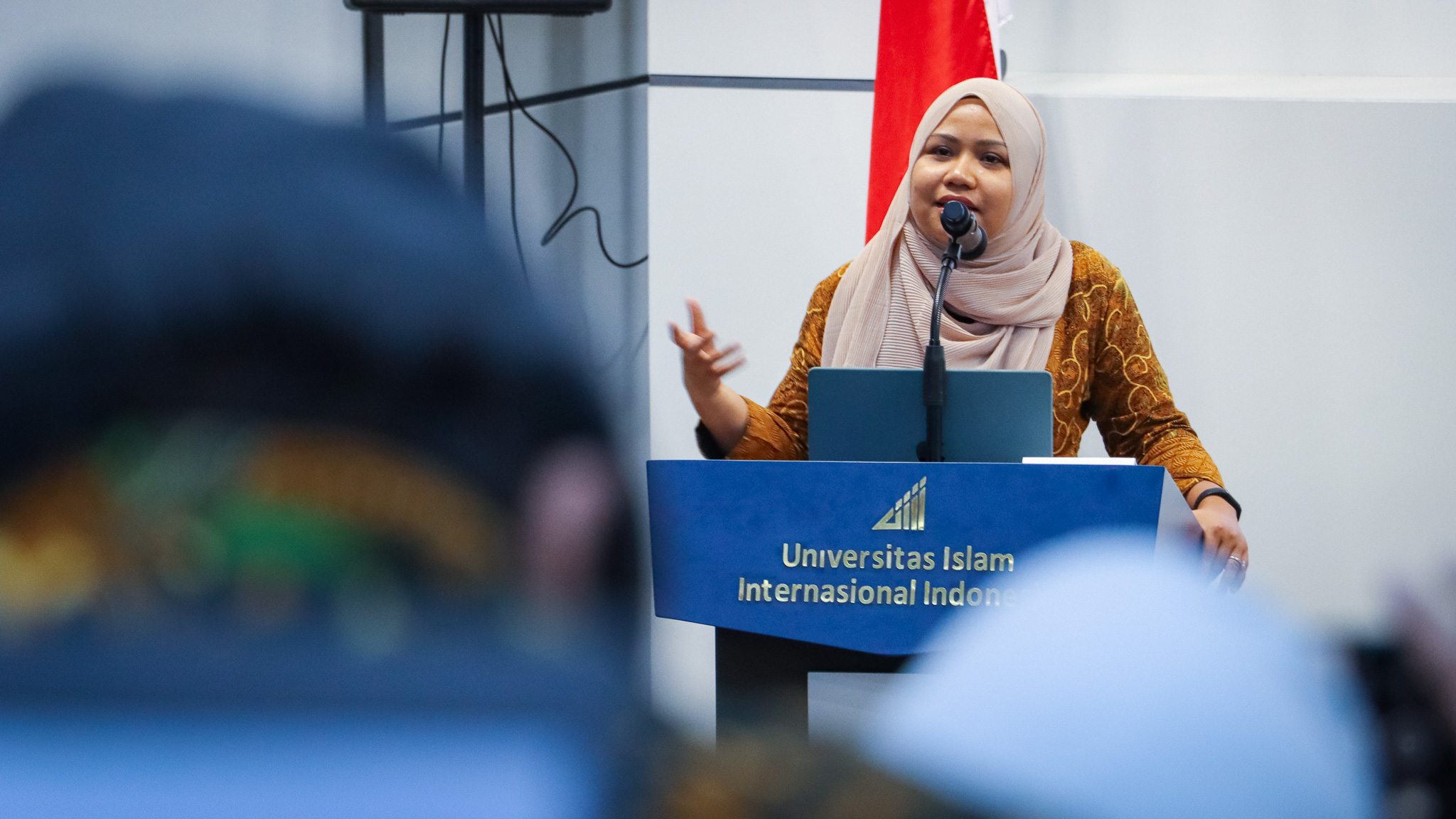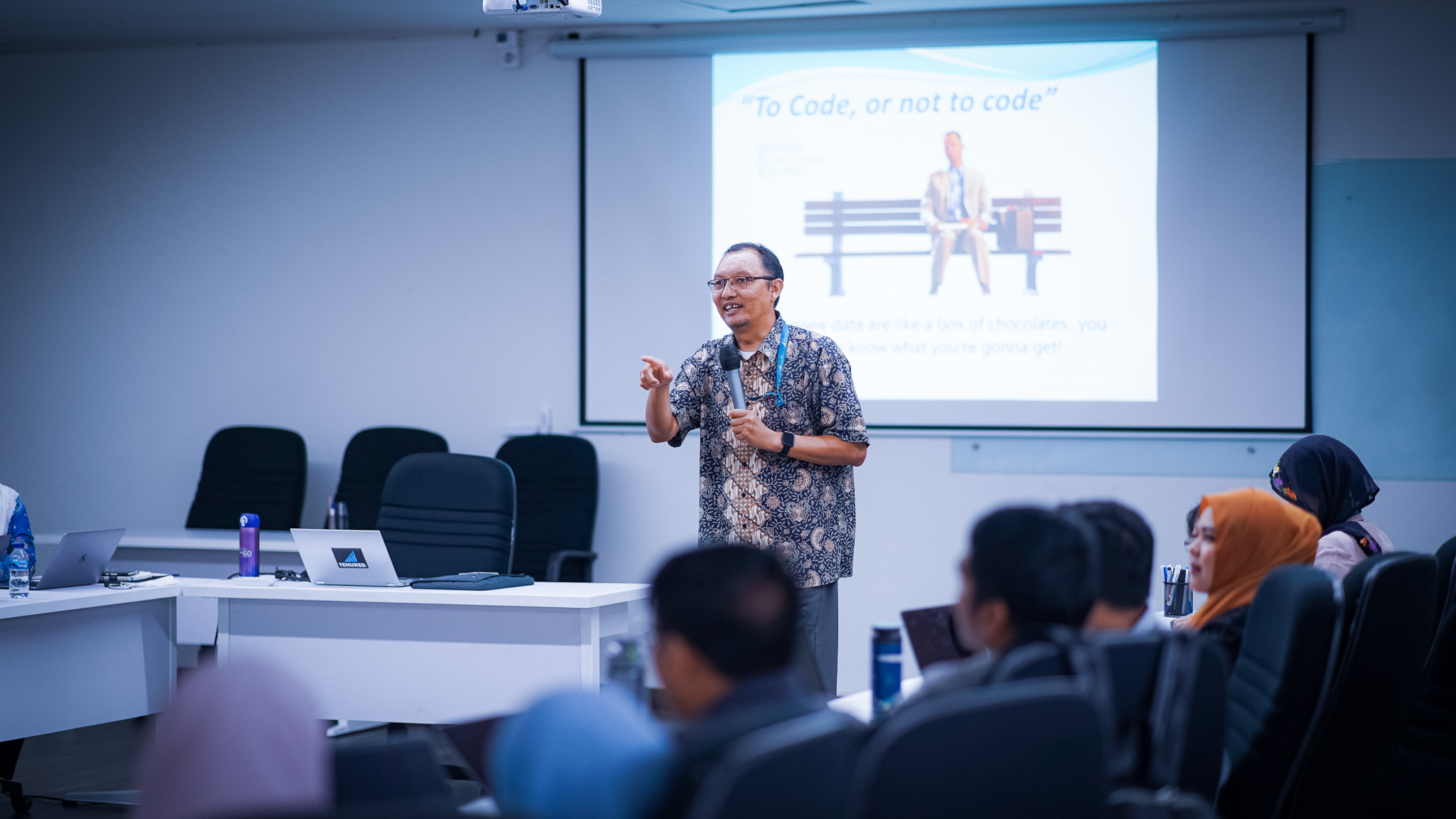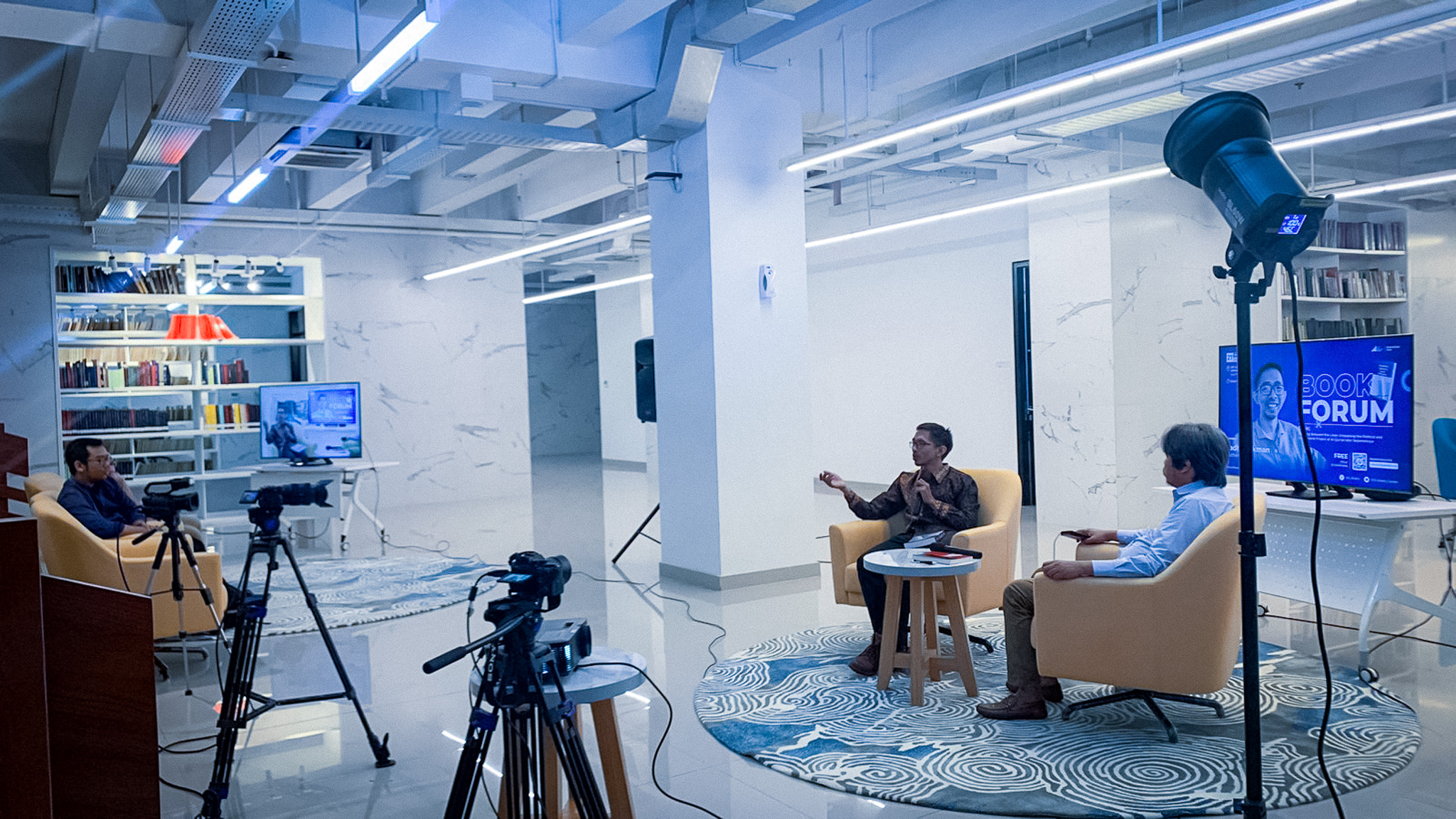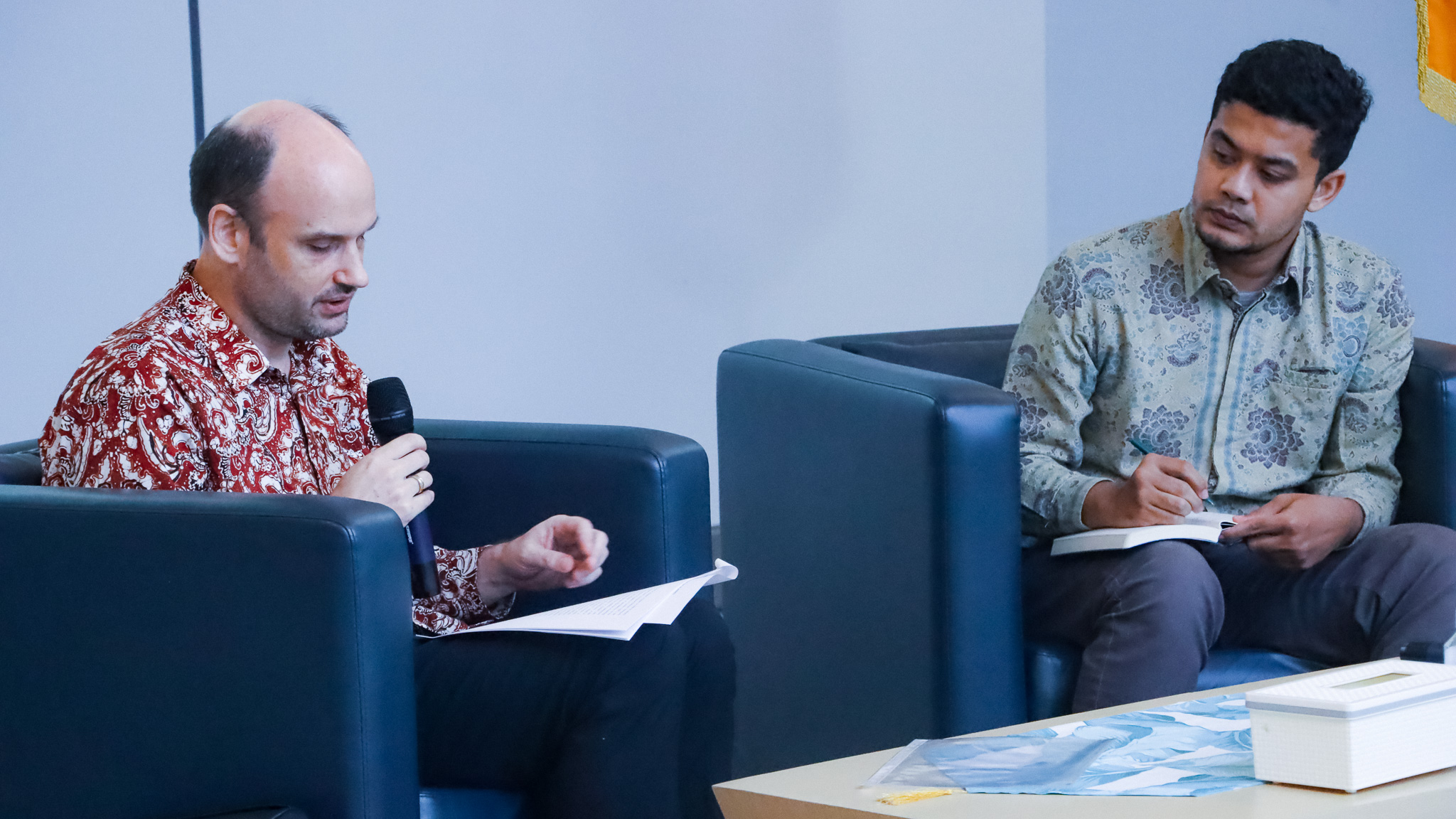UIII Holds Workshop to Critically Engage with Sunni-Shiʿi Sectarianism
December 29, 2023Contributor: Kante Hamed | Editor: Supriyono

UIII.AC.ID. DEPOK - A workshop titled "Sunni-Shiʿi Sectarianism" took place on December 12, 2023, hosted by the Faculty of Islamic Studies at Universitas Islam Internasional Indonesia (UIII), led by Dr. Siti Sarah Muwahidah from the HRH Prince Alwaleed bin Talal Center for the Study of Islam in the Contemporary World at the University of Edinburgh, the United Kingdom.
The workshop, specifically designed for first-semester students enrolled in both the MA and PhD programs, is part of the ongoing collaboration between the Faculty of Islamic Studies at UIII and the University of Edinburgh. The 'Edinburgh-UIII Postgraduate Dual Degree Partnership on Islam and the Globalized Muslim World program, under the Going Global Partnership Program, commenced in May 2022.
The workshop focused on delving into the complex terrain of Sunni-Shiʿi sectarianism, employing interactive methods to facilitate a deeper analysis and understanding among the participants. The attendees were provided with selected readings and thought-provoking questions to elucidate the topic, explore key findings, and foster an in-depth comprehension of sectarian dynamics within Islam.
The workshop commenced with an initial session titled "Sunni-Shiʿi Sectarianism: Theories and Critiques." Attendees were required to engage with two prescribed readings: Gaiser, Adam R. “A Narrative Identity Approach to Islamic Sectarianism.” In Sectarianization: Mapping the New Politics of the Middle East, (2017). And the article of Muwahidah, Siti Sarah. “For the Love of Ahl Al-Bayt: Transcending Sunni-Shiʿi Sectarian Allegiance.” Journal of Shi’a Islamic Studies 9, no. 3 (2016)
To enhance the interactive nature, several questions were posed for the participants' engagement, stimulating critical thought and discussion. The questions are: (1) Does the concept of “sect” sufficiently describe the internal diversity within Islam? (2) How do we identify boundaries between groups, particularly between Sunni and Shiʿi communities? (3) Are there individuals whose religious identity or expression does not fit into a single category? How do you analyze such cases?
Two distinct discussion groups were formed, each focusing on specific readings and discussions. Group 1 delved into Hashemi, Nader, and Danny Postel. Sectarianization: Mapping the New Politics of the Middle East. Oxford University Press, 2017. and “The Study of Sectarian Relations: Key Debates,” in Haddad, Fanar. Understanding “Sectarianism”: Sunni-Shi’a Relations in the Modern Arab World. United Kingdom: Oxford University Press(2020) They were tasked with identifying and discussing key debates in the study of Sunni-Shi’i relations, particularly exploring the applicability of the sectarianization framework.
Group 2, on the other hand, explored Nader Hashemi and Danny Postel's book "Sectarianization: Mapping the New Politics of the Middle East" Oxford University Press,(2017) and Mohd Faizal Musa's article "State-Backed Discrimination against Shia Muslims in Malaysia." Critical Asian Studies, (2017). They focused on discerning the key players/institutions perpetuating anti-Shi’a sentiment and discrimination in Malaysia, and whether the sectarianization framework could be effectively utilized to analyze the situation faced by Shiʿi Muslims in Malaysia.
The deliberations of Group 1 emphasized the significance of the sectarianization framework in understanding the multidimensional nature of Sunni-Shi’i relations, offering insights beyond religious differences. They highlighted the contextual, historical, and political factors shaping these relations, emphasizing a holistic approach to comprehending these dynamics.
Meanwhile, Group 2 identified several key players and institutions responsible for anti-Shia sentiment and discrimination in Malaysia, such as the National Fatwa Council, the Department of Islamic Development Malaysia (JAKIM), and non-state Islamists. They elucidated how the sectarianization framework sheds light on the role of these entities in marginalizing and persecuting Shia Muslims.
As the workshop reached its conclusion, the lecturer meticulously reviewed the students' responses, offering insightful comments and additional clarifications. A unanimous agreement emerged among the participants regarding the framework's indispensable role in deciphering the intricate nature of Sunni-Shi’i relations. This consensus further encouraged the attendees to delve deeper into exploring the dynamic interplay existing within the Islamic world.
- Brownbag Series #41: Ba’Alawi Community in Indonesia’s 21st Century
- UIII International Students Find Bliss in Impromptu Trip to Cilember Waterfall
- BRIN Researcher Presents Findings on the Paradox of Feminism In Indonesia
- ECOBIZ Student Association Elects New Leadership Through Annual General Assembly
- Unlocking Digital Adoption for Indonesian MSEs: A Public Lecture with Prof. Irwan Trinugroho
- UIII-Deakin Joint Lecture Addresses Issues on ‘Education and Society’
- FoE’s Guest Lecture on Virtual Learning and Inquiry-Based Lesson
- UIII's SF Updates: How Digital Economics Improve Sustainability in Finance?
- UIII Disseminates Rights and Responsibilities of International Students
- Rising from the Ashes: Garuda Indonesia CEO Shares Key Lessons from Successful Restructuration at UIII's BIZTALK Event


